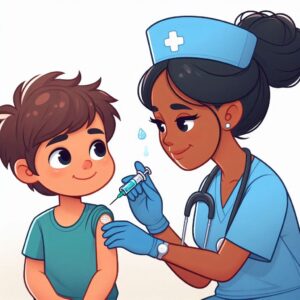Each August, National Immunization Awareness Month (NIAM) is observed nationwide to promote the importance of vaccinations for people of all ages and backgrounds.
Vaccines have dramatically changed medicine over the last century. The Georgia Chapter of the American Academy of Pediatrics reports that before vaccines, parents in the United States could expect that every year:
- Polio would paralyze 10,000 children.
- Pertussis (whooping cough) would kill 8,000 infants.
- Measles would infect about 4 million children, killing about 500.
- Rubella (German measles) would cause birth defects and intellectual disabilities in as many as 20,000 newborns.
- Diphtheria would be one of the most common causes of death in school-aged children.
- A bacterium called Haemophilus influenzae type b (Hib) would cause meningitis in 15,000 children, leaving many with permanent brain damage
Per the 2024 Statpearls entry on Immunization, “vaccination is vital to public health. Disease prevention has been proven to prolong life expectancy and improve quality of life. As antivaccination movements gain traction, diseases once thought to be eradicated or nearly eradicated have had significant outbreaks. Unfortunately, preventive measures such as vaccines are often overlooked by primary care providers and patients. For children, parents often do not know the appropriate schedule for vaccines, and therefore are often unaware of when their children are behind on vaccinations. Another common reason for missed vaccination is missed appointments for various reasons. Patient recall and reminder systems have been created and shown significant improvement in increasing vaccination compliance rates.”
More information is available at the CDC NIAM web page including Vaccine Schedules and strategies to help encourage Immunizations.
Emory University and Healthcare users can access the point of care tool, DynaMed for additional resources on Immunizations in Adults, Children and Adolescents, and Immunocompromised individuals.

